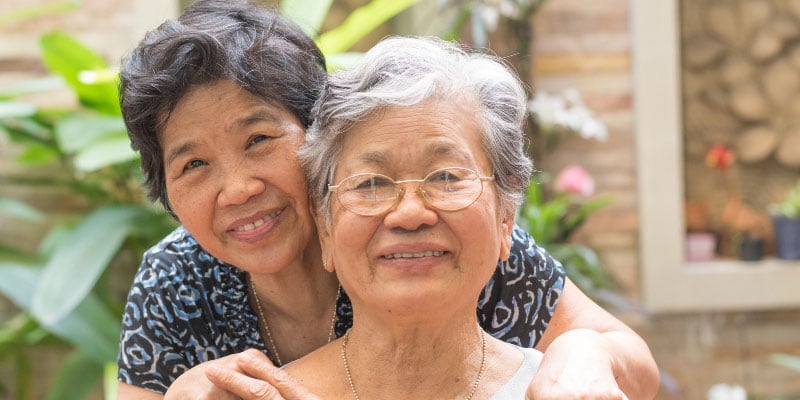Being a full-time caregiver is a challenging and strenuous activity that takes a lot out of us. However, many of us still take on this task to provide care for our loved ones. That doesn’t mean that we shouldn’t take advantage of respite care when the opportunity is offered. Respite care is not only beneficial for caregivers, but for our loved ones as well.
What is Respite Care?
Respite care is a service for family caregivers and their loved ones that provides temporary care for a loved one when their caregiver needs to be away. This type of care can be offered in at-home care services, adult day centers, and extended stays in an assisted living community.
Why Respite Care is Important
Respite care is an opportunity for a much-needed break for family caregivers. Being the primary caregiver for your loved one can be rewarding, but it can also be detrimental to your health, causing stress, depression, burnout, and sickness. It’s important for both you and your loved one to get a break every now and then.
Benefits of Respite Care at an Assisted Living Community
There are a variety of ways respite care at an assisted living community can help you and your loved one unwind and improve overall health.
1. Relaxation
Respite care gives you time away from your loved one to relax and re-energize. Being the primary caregiver for your loved one can leave you with little downtime, which is necessary to maintain a healthy lifestyle and continue to provide the best care. Respite care at an assisted living community allows you to take an extended break, such as for a business trip or vacation, while ensuring your loved one is getting the care they need in your absence.
When you return, you’ll feel refreshed and have a renewed resolve in caring for your loved one. Additionally, respite care in an assisted living community can feel like a vacation for your loved one, too, by giving them the opportunity to experience a new place, new activities, and new people.
2. Space
Even getting away from your role as a caregiver for a few hours can give you the space you need to clear your head. It’s easy to get caught up in all the ways you help your loved one, and respite care allows you to set it aside for some time and refresh to come back and look at things from a different perspective.
3. Identity
Being a caregiver for a loved one takes a lot of time, and you may start to feel lost in your role as a caregiver and lose touch with other aspects of yourself. Respite care is there to help you maintain your sense of self by allowing you a break from your role. Being the primary caregiver for a loved one is an important role you play, but it shouldn’t be your only role. Your mental health and self awareness are extremely valuable to caring for your loved one, and respite care allows you take care of yourself, too.
4. Socialization
One common issue with caregiving is social isolation. Even as a caregiver, you need time with your friends and family to do things you enjoy. Respite care gives you the opportunity to engage with others. You might even find other caregivers in your area to spend time with and support each other. Engaging with others who understand your situation can help you feel less alone.
Your loved one can also start to feel lonely. Respite care gives seniors an opportunity for socialization with others outside their family, which is beneficial to their health, too.
5. Worry-Free Time Away
Respite care is important so you can relax and rejuvenate. That’s hard to do if you’re worried about how your loved one is doing in your absence. Respite care services from an assisted living community assure your loved one will receive the care they need while you’re gone. Assisted living communities can also offer specialized care depending on the needs of your loved one.
6. Give Better Care for Your Loved One
Respite care isn’t just beneficial to you as the caregiver. It’s beneficial to your loved one, too. When a caregiver is burnt out, they won’t be able to provide the best care for their loved one. Respite care helps caregivers avoid burnout, meaning you can continue to give your loved one the best care.
7. Help Transition to Assisted Living
There may come a time when your loved one will need more advanced care or your situation may change and you won’t be able to be the primary caregiver for your loved one. Respite care with an assisted living community can help ease the transition for a loved one to being in assisted living. You and your loved one will be familiar with the space as well as the staff and residents that will make transitioning to a permanent assisted living community less jarring.
Respite care with an assisted living community provides a much needed break for both you as the caregiver and your loved one. Vista Springs offers respite renewal for your senior loved ones that make respite care a vacation for them in one of our resort-style communities.





